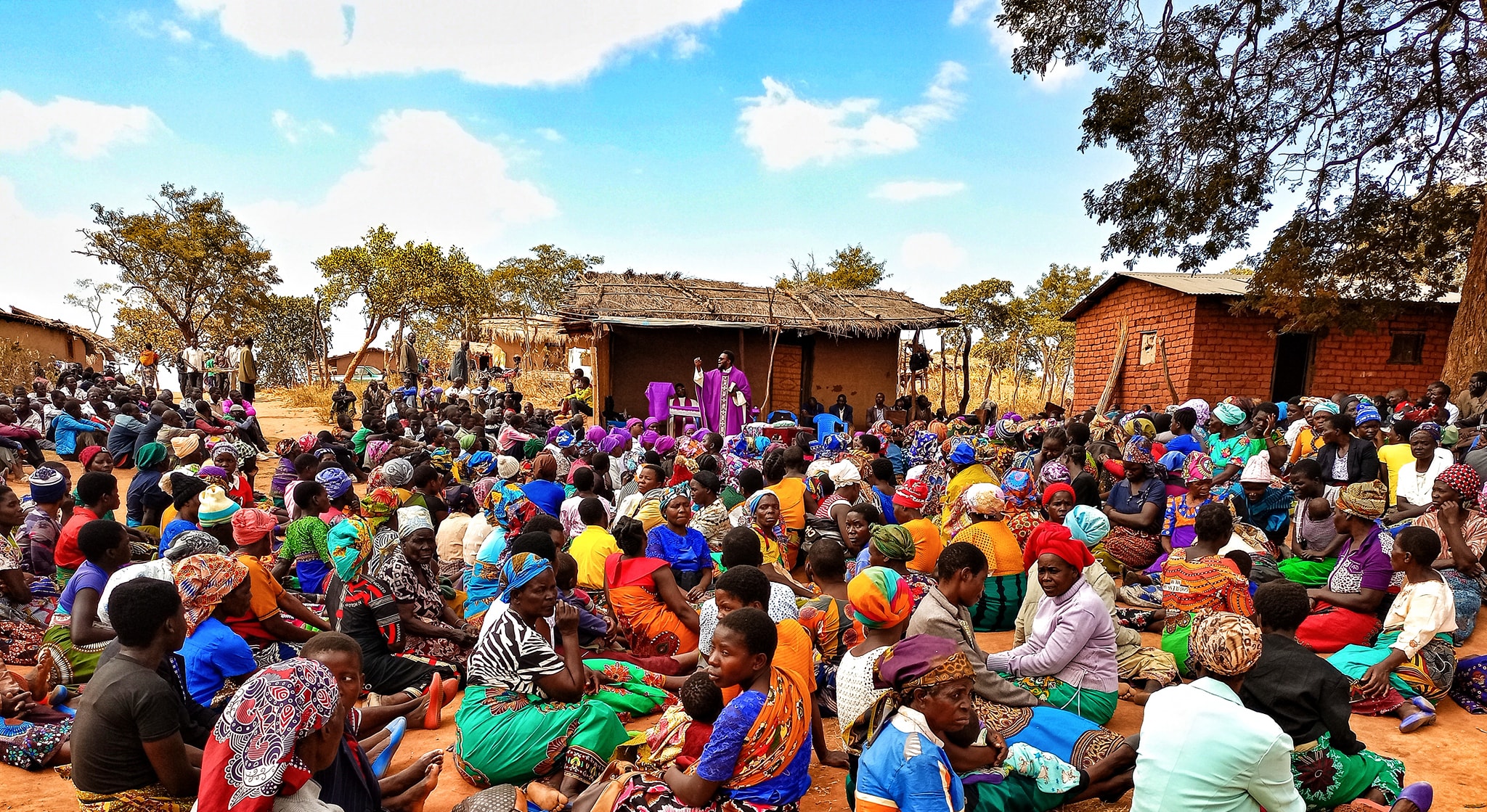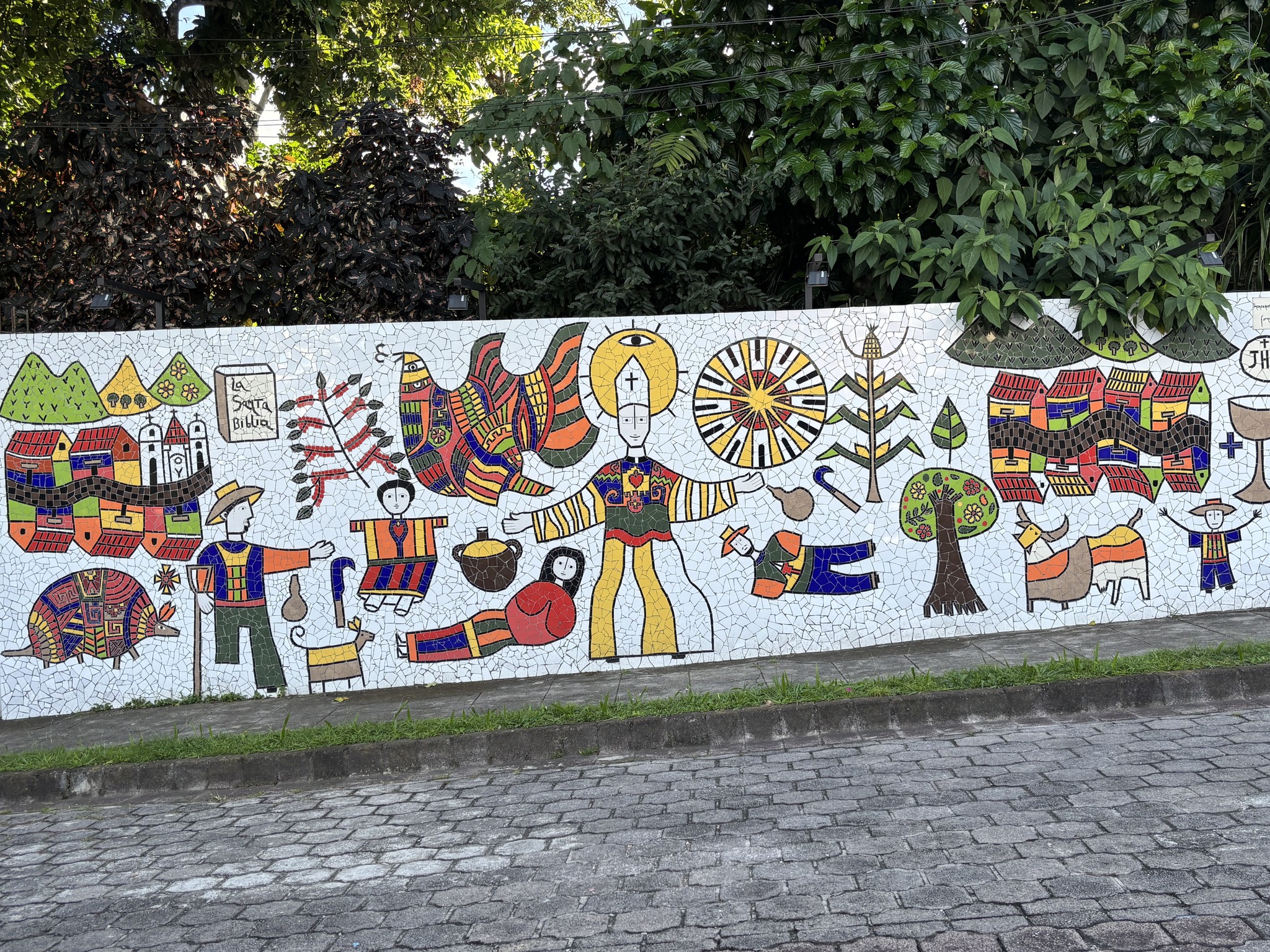FAUSTO GOMEZ OP
Contemporary Christian spirituality tries to avoid two extremes: spiritualism (the individualistic and escapist fuga mundi and contemptus mundi: flight from and contempt of the world) on one hand and, on the other, activism (human and social promotion disconnected from prayer and contemplation). In other words, authentic spirituality tries to avoid an escapist and self-righteous spiritual life, and a worldly activism overcrowded with external social activities. Many Christians, with other religious people, try seriously to follow the example of the mystics, the saints, and the good Christians, who, the more they were united to God in prayer, the more they committed themselves to the neighbor, in particular the poor and wounded neighbor. Certainly, the saints are the ones who renew the world. Gandhi once said that “Our world needs saints not politicians.”
Hereafter, we suggest four characteristics that should perhaps be in any Christian spirituality in the third millennium: a Christ-centered, mystical, liberating, and ecological spirituality.
1. Christian spirituality is Christo–centric, wholly focused on Jesus Christ. Jesus is the only name under heaven that saves men and women (Acts 4:12). This is obvious, but always in need to be pointed out: Christians are followers of Christ. The central focus of moral theology and spiritual theology is Christ, the Way the Truth and the Life (John 14:6) as unveiled by revelation. Christ is “the heart” of Christian life, of catechesis and evangelization (cf. Vatican II, NAE, 2; GS, 22; CCC, 426-429). Therefore, the greatest value of the human being is “the union with Christ and in Christ with the Father and the Holy Spirit” (Marti). Jesus Christ, the Son of God and the perfect man, is the one who reveals to us the Father in the Spirit. He reveals man to himself and to all the sublimity of their vocation. Christ, “the image of the invisible God” (Col 1:15), reveals to humanity the dignity of the human person, thus raising human nature to its highest dignity. Moreover, Christ by dying on the Cross reveals to women and men the gravity of sin and their need of a savior. Christ is the universal Redeemer “In him, there is no West or East; in him/there is no South or North/But one great fellowship of love/Throughout the whole wide earth” (John Oxenham).
2. True Christian spirituality is mystical spirituality. There is today a rebirth of mysticism and the attraction to mystical life. This mystical life is not an aristocratic and elitist one, possible only as it may appear, for extraordinary souls. It is a mystical life which is reachable by all faithful Christians, and also by other believers and persons of good will. Mystical life is understood today as a loving union with God the Father through Christ, His only begotten Son, and by the power of the Holy Spirit. As Vatican II made very clear, all Christians are called to holiness, to the mystical union with Christ, although only some receive special graces or extraordinary signs of the mystical life, which, after all, are not necessary at all – as the mystics themselves affirm repeatedly.
Following Christian tradition, mysticism is always preceded and accompanied by asceticism. Writes Joseph Phan, OP: “Asceticism and mysticism are so intermingled that there is never a purely ascetical state or a purely mystical state. While Fr Arintero says, “The ideal of the mystical life requires the most demanding ascetical life”. Spiritual progress implies asceticism, mortification and the desert experience. These lead gradually to abandon sin, live virtuously, witness the Beatitudes, and embrace – in an ever-deeper manner – the cross of life. Taking the way of the cross that leads to perfection is difficult but possible with the needed ever-present infinite grace of God and our humble and limited free cooperation.
3. Integral spirituality comprises a transcendent and an immanent dimension, love of God and love of neighbor, a mystical and liberating experience, and contemplation and action. It is, as Simon Chan asserts, neither “an ahistorical interiority” nor “an uncritical involvement in the historical (more often, sociopolitical).” Nevertheless, one cultural context may focus more on one than on the other dimension. For instance, Philippine Theology stresses more its liberating aspect – action – while other Asian cultures center more on prayer and contemplation.
There can be no authentic Christian spirituality without a deep concern for and commitment to justice, a justice informed by charity, which is the form of all virtues in the sense that charity directs all virtuous actions to the final end. As it is made clear in the Sacred Scriptures, there can be no true love without justice. Charity is God’s love in us and, therefore, like the love of God, ours is primarily addressed to the poor and needy. In this context, the Asian Bishops wrote: “The search for holiness and the search for justice, evangelization and the promotion of true human development and liberation are not opposed, but make up today the integral preaching of the Gospel, especially in Asia.” Words to ponder: “At the beginning of the century, the issue that challenges most our human and Christian consciences is the poverty of countless millions of men and women” (St. John Paul II).
The context of liberation today goes beyond the horizon of liberation theology to envelop all human groups that need liberation from oppression, injustice, discrimination and marginalization. These prioritize children, women, the elderly, migrants, and refugees, among others. At the closing of Vatican II (December 8, 1965), Pope Paul VI stated that the model of the spirituality of the Council was the story of the Good Samaritan. Pope Francis underlines frequently mercy or compassion as the distinguishing characteristic of God and of the authentic Christian (Misericordiae Vultus).
4. Ecological sensitivity and responsibility. In global context, the author underlines with many others a fourth concern for any spirituality today:Spiritual theology listens to the signs of the times.One sign, or a messenger of God’s word is, as Pope Francis makes powerfully clear in his Encyclical Letter Laudato Si’, ecological awareness and responsibility. In a world of plenty, many poor and needy do not share in it at all. In his ecological encyclical, the Pope repeatedly connects “the cry of the earth” with “the cry of the poor.” Gurus of integral climate change connect the two, too.
A mystical life, focused on the loving union with God and neighbor, converses respectfully with and cares for nature. Authentic spiritual theology helps people, too, be socially and ecologically responsible, and thus live a truly cosmic spirituality.


 Follow
Follow


